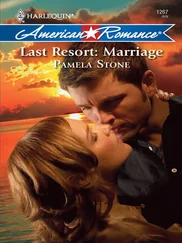Now the police and an ambulance had arrived; followed by a tow truck with a winch attached. Already a little crowd of those human ghouls who are attracted as if by magnetism to disaster had begun to gather. Men with heavy equipment ran out along the pier, shaking the boards.
Obeying their shouted instructions, Wilkie and the other amateur rescuers swam and squeezed their way back under the pier. He dragged himself out of the water into a cold wind, realizing that he was exhausted and shivering. His arm was bleeding, but there was nothing to staunch the blood with: his towel, his shirt, and one of his sandals were gone, no doubt knocked into the water by some fool in the confusion.
Wearily, he tramped back up the pier. One of the policemen stopped him, asking stupid repetitive questions and clumsily recording his name, address, and phone number.
“Okay, Dad, you better get on home now, warm up,” the cop told him officiously. “We’ll be in touch with you later to take a statement.”
Exhausted, furious, Wilkie limped across the beach in his remaining sandal, and started along Reynolds Street in the windy dusk. It was beyond reason, beyond justice, that he should be balked this way, over and over again. It was as if there were some invisible but vicious force that wanted to thwart him; that had already thwarted him again and again. Something that wanted him to die slowly, humiliatingly, in agony.
Halfway up the first block he stopped. What the hell am I doing? he thought. I could go back now and finish the job. He turned. The tow truck and ambulance were still there, their red and white lights flashing off-sync. He’d have to wait till they left, and he was now shivering almost continually, but what did that matter? He’d be dead before he could come down with anything.
But if he died tonight, his death would be arbitrarily but inexorably linked with that of the man in the wheelchair. Wilkie could imagine the headline in the Key West Citizen: TWO DROWN AT HIGGS BEACH. Worse, the Times would probably mention it in his obit. Forever and ever after, his life of respectability and achievement would be associated with that other pathetic death.
Yes, and some might even wonder if there was an actual link between them. The human mind is confused by coincidence into suspecting connection; it formulates false explanations. Synchronicity, it had been called by Jung (a thinker for whom Wilkie had little use). Was Professor Walker’s death at the same time also a suicide? That was the kind of question that would occur to the sort of critics and biographers who are always sniffing out scandal where it doesn’t exist.
He’d seen it happen to others, friends who were gone now. Bill Lumkin, for instance, killed in a fire trying to rescue his neighbor’s old tomcat. Afterward people started wondering why the cat was in the Lumkin’s barn anyhow, what did that mean? When the answer of course was, it was there to catch mice.
Maybe Wilkie Walker knew the man in the wheelchair, the scandal-hounds would speculate. Maybe they had once been intimate.
No. That must not be. He must postpone his accident until there was clearly no connection between it and the one he had just witnessed. He must wait a day—probably, to be safe, two. Two days of pretending to eat. Sleep. Talk. Of more promises to lecture and write that would never be kept, but would prove he planned a future and was a good and generous person. Wilkie felt the weight of those days crushing him like stones falling from the darkening sky. Chilled to the bone, almost dizzy with despair and exhaustion, and becoming increasingly conscious of a full bladder, he turned and limped on through the cold evening.
He would have to tell Jenny what he’d just seen, to prepare her for the arrival of the police. But not just yet. First he needed a hot shower and a shot of bourbon. The windows of their house were unlit: maybe nobody was home.
No such luck. There was a female figure by the gate, half illuminated by the outdoor lights that went on routinely at dusk. Not Jenny, but the friend of the manatee, Barbie Mumpson.
“Oh! Professor Walker!” she cried in a rush, grabbing his sore arm. “I’ve been waiting for you, I’ve got so much to tell you! I met this really nice man on the beach this afternoon, and he says there’s a lot of wonderful people in the Keys that are working to save the manatee. And I told him you might be interested, and they were absolutely thrilled. They’re having a big meeting here next week, and I said I’d ask you to speak. So please, please, say you will, because I promised I’d try as hard as I could—”
The girl stood close to Wilkie, clutching his injured arm, looking up at him with her round, stupid baby face, panting at him, blocking his way into the house. Get rid of her, he thought.
“Yes, all right,” he growled, because in two weeks he would no longer exist. Exhausted, he tried to put her aside, but Barbie wouldn’t let go.
“Oh thank you, thank you!” she whined; and then suddenly she bounced up and planted a long wet, sloppy, warm kiss on his mouth. “Oh, that’s so wonderful. They’ll be thrilled, I know they will. I just hope I’m still here to hear you, that would be so great!”
“Yes, well, excuse me,” Wilkie said, detaching himself finally, rather roughly. “I need to—”
“Oh, gee, of course, I’m sorry—” Finally, she got the hell out of the way. “I didn’t realize, I was just thinking—” But the rest of her gush of words was lost, amputated by the slam of the front door.
11
ON TUESDAY MORNING, AS Lee Weiss sat on her veranda fringing some handwoven napkins, Jacko’s pickup truck swung into the driveway. He leapt out, carrying a great armload of white hothouse flowers, followed by his fluffy white cat, Marlene.
“Hey,” Lee called. “What’ve you got there?”
“They’re from Dennis,” he said, mounting the steps. “People keep sending them, and he wanted them out of the house.”
“Out of the house?” She contemplated the mass of foliage: lacy ferns, sprays of daisies, waxy trumpet lilies, ruffled carnations, tall gladioli, and roses in every shade of white from snowflake to heavy cream. “But the funeral’s tomorrow. They’ll keep until then.”
“He doesn’t like the white ones. For Chinese people, white is the color of death.”
“Yeah, I read that somewhere, but—Well, hell, after all, Tommy is dead.”
“Dennis says they spook him. Anyhow, the service is supposed to be a celebration of Tommy’s life. So I thought maybe you could use them.”
“Well—Sure I can, I’m not Chinese. Thanks, that’s great.” She removed her bare brown feet from the battered wicker coffee table and stood. “Bring them into the kitchen; I’ll find some vases.
“So how’s Dennis doing?” Lee asked as she filled her deep sink with cool water and immersed the mass of flowers.
“Kind of strange.” Jacko sat on the creaky wicker sofa and took Marlene onto his lap. “I think he’s still in shock.”
“That figures.” Lee began to cut the stiff, woody stems of the carnations under water.
“He phoned me late last night, asked me to come over. He didn’t sound too bad, but by the time I got there he was really down. He started in again about how his life was over, and he’d never love anyone the way he loved Tommy. Then he said he might as well be dead too, and if he hadn’t promised Tommy to go on living he’d probably kill himself sooner or later.”
“Tommy made Dennis promise to go on living? That was smart of him.” Lee started to fill a glazed blue jug from White Street Pottery with white carnations.
“Oh, yeah. Tommy told him that because he was HIV-negative it would be his job from now on to enjoy all the things Tommy used to enjoy, twice as much. Drink Dubonnet and lime, and play their Callas records, and have artichokes with homemade hollandaise at least once a month. He said he’d be watching, and if he looked down and saw that Dennis wasn’t having a good time he’d be very cross.”
Читать дальше












